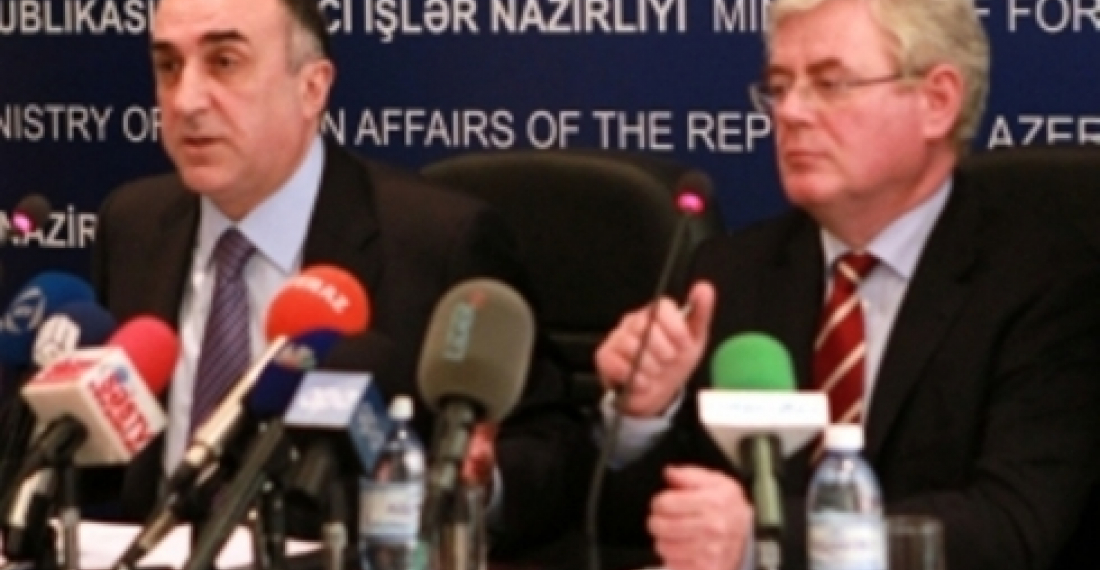For the last few weeks the buzz words in the international community when discussing the Nagorno-Karabakh conflict have been "confidence building measures" and "incident investigation mechanism".
Confidence-building measures are seen as necessary to reduce military and political misperception and help create the right environment for the peace negotiations to be relaunched. There is a lot of talk that the European Union may take responsability for these measures using its experience in the Balkans and elsewhere.
"Incident Investigation mechanisms" is a term that emerged publicly from the last meeting in Sochi between the President of Russia and those of Armenia and Azerbaijan. They are seen as a response to increased violations of the cease fire on the line of contact seperating Armenian and Azerbaijani forces. Both Armenia and Azerbaijan have in principle committed themselves to both. But, it seems that their understanding of how things can work out is very different.
On Thursday (14 June) it was left to the usually affable Foreign Minister of Azerbaijan, Elmar Mamadyarov to throw a cold shower over the proposals. Mamadyarov categorically ruled out any measures that would consolidate the status quo. Speaking at a Press Conference in Baku, together with the visiting Irish Foreign Minister and Chairman in Office of the OSCE, Eamon Gilmore, Mamadyarov said that introducing such measures in the present time would re-enforce the status quo, which is not acceptable to Azerbaijan.
The Minister was quoted by News.az as saying that "the mechanism can be applied only after Armenian occupational troops start withdrawing their occupation troops from Azerbaijan, otherwise it would mean the strengthening of the current status quo". The Minister added that a "Soldier’s death is an extremely unpleasant event. But if the Armenian leadership wants to stop people from dying, let it withdraw from the Azerbaijani territories".
It was left to the OSCE Chairman to reiterate the OSCE position:
“The cycle of violence must stop - this conflict will not be resolved by the use of force,” he said. Gilmore urged the sides to further advance their work on the general principles of a resolution, implement confidence-building measures, namely the removal of snipers from the line of contact, an agreement on a mechanism for investigating incidents on the frontlines, and following through on the recent agreement by the Presidents to develop people-to-people contacts.
“The OSCE Chairmanship supports the efforts of the OSCE Minsk Group Co-Chairs to work with the sides on strengthening the ceasefire and finding a negotiated solution,” Chairperson Gilmore said. He also stressed the OSCE’s support to the sides to bridge differences between countries and between peoples.
“We want to help the region move towards a lasting peace,” he said. “We in Ireland, through the Northern Ireland Peace Process, have witnessed the fact that empathy, tolerance, respect and inclusiveness – the readiness to accommodate differences – are key to successful peace talks. We cannot impose a solution, but we can provide a forum for dialogue.”
It was one press conference, but the two men were clearly not on the same page.
source: commonspace.eu with News.az, Trend News Agency and the Press Service of the OSCE.
Photo: The Foreign Minister of Azerbaijan, Elmar Mamadyarov and the Chairman-in-Office of the OSCE Eamon Gilmore in Baku on 14 June 2012 (picture courtesy of the Press Service of the OSCE.)







